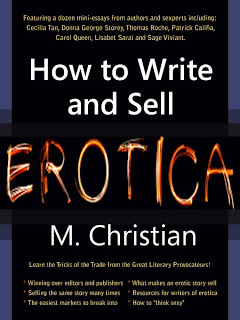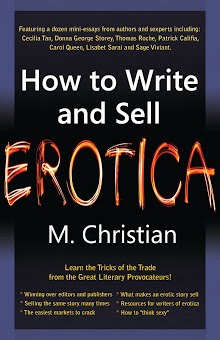Value
Money, bucks, dough, dollars, legal tender, the green stuff: I’ve got some news for ya, folks. Being a writer, you are just not going to be seeing a lot of it.
I know that’s tough to hear, but that’s the reality. The number of folks who make even just a living wage at writing is too damned small. Hell, I can’t do it. In fact, no one I know can do it, and I know quite a lot of writers. The few that come close are usually pretty high on the profile scale: novels, screenplays, those kinds of really big things—and then a lot of those big things.
Not that writing for a living is impossible, but I find way too many folks start out writing thinking that being Stephen King and million dollar advances are right around the corner. The spiel I usually give about writing and money is that it’s possible to make money, fun money, but it just isn’t enough to live on.
It’s true in erotica as in other genres—even though, yes, sex sells. But what shocks beginning erotica writers even more than the lack of funds coming their way is this: to writers, especially erotica writers, money isn’t all that important.
Now, wait a minute; I don’t mean that writers shouldn’t get paid, or that payment shouldn’t be fair. What I mean is that money, for a beginning writer, shouldn’t be a major motivation for either writing or deciding where to submit a story for consideration.
For instance, just like everywhere else in life, money does not equal quality. Lack of it, not being paid a lot, does not mean a publication is not worthy of your work. Similarly, a high-paying market doesn’t mean a quality book, magazine, or site.
When building a body of work, while money is nice—very nice— it’s most often not what other writers, publishers, and editors will notice when they look at your cover letters. Saying that you have stories in Big Boobs Monthly, Leathermania V, or Transsexual Hookers in Trouble might mean lots of green backs, but it doesn’t spell high quality. Though if you say your work has appeared on a quality and respected site, it might not mean dinner out and a show but it does mean: wow! Respected sites and magazines may not pay, but their editors know a good story when they read one, so to have passed their scrutiny can be worth more than a nice big check.
Sure, I think everyone should get paid—especially if the editor or publisher is taking a lot of money home and not sharing with the contributors involved—but sometimes money is not the only way a writer can be paid. Not to sing the same song too many times, but making connections can often lead to much bigger deals, markets, and opportunities down the road, and only looking at an editor or publisher by what they pay may mean missing much more valuable opportunities later on.
But that doesn’t mean that a writer should throw their work away. Very often I come across writers who desperately want to see their work in print—or on a site—and so will post or send off their work to the first opportunity without first trying it somewhere nicer. Nicer, of course, doesn’t mean big bucks but rather better status or acting as a way to find better gigs. I really recommend writers start out high: try for a book, or a print magazine, or a really superb site before settling for something with not a lot of visibility just to get your story in print, so to speak. It might mean facing rejection (in fact it usually does) but it’s better to try for something big then settle for something small, in life as well as in writing.
If I could sum this up in a simple statement, I guess I’d say that it’s important to remember that your work always has value, even though value doesn’t always equal money.











